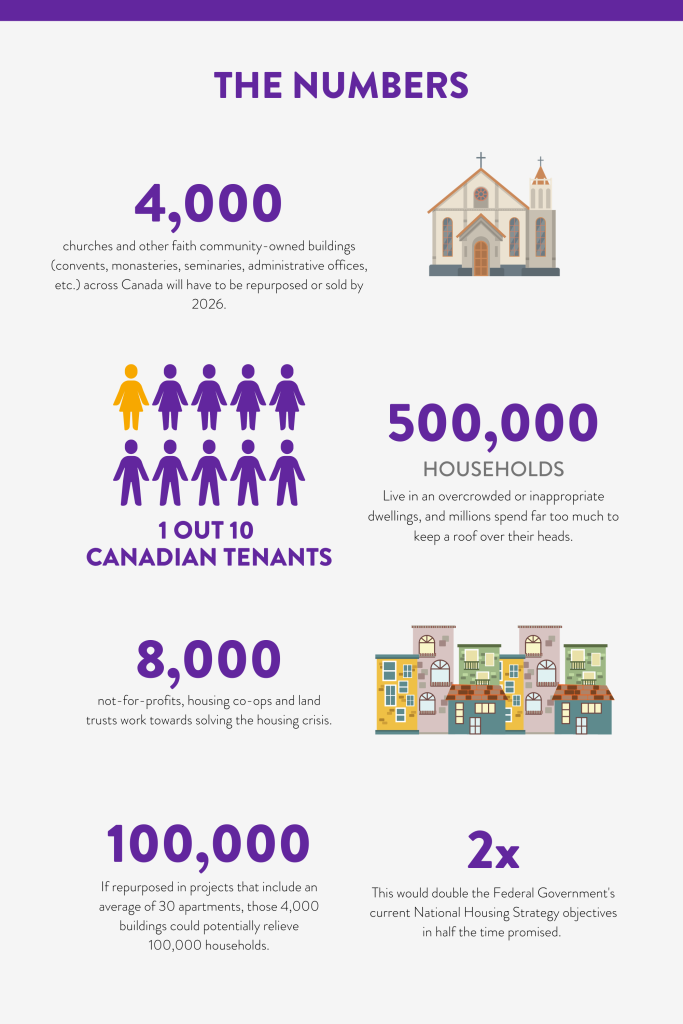A Conversation Between Municipal, Religious and Community Stakeholders
October 25, 2023 | 2:30 P.M. – 6:20 P.M. EST
Join leaders from different denominations and critical stakeholders from the community housing sector on October 25, 2023 at a round table where we’ll reflect on the potential for a more systematic collaboration between faith-based property and the housing land supply.
The community housing sector and faith groups face similar challenges, but with the right approach, we can turn them into opportunities.
Background
Faith groups and community housing organizations share a common aspiration to create a more caring and humane society. In fact, many community housing organizations have roots in the humanitarian mission of faith groups.
Historically, faith groups have been key players in establishing community housing in many cities, towns, and rural communities. However, these initiatives were and continue to be the result of random circumstances that brought together the right mix of people, locations, buildings and financial opportunities.
What can we learn from those experiences, and what can we do to increase the scope and speed of this collaboration while ensuring that faith communities maintain the resources necessary to support their mission in a changing world?

The challenges
Time
On the one hand, the 4,000 faith-based buildings will be engaged in some sort of divestment process by 2026. That said, most of those in charge of those assets have yet to gain a clear vision of what and how to divest them. On the other hand, setting up community housing projects routinely requires more than five years to get to the point of financial engagement. Development work needs to be seriously accelerated and simplified for both parties.
Partnerships
While open to supporting the community housing sector, faith groups are committed to many other humanitarian and spiritual missions. They must ensure they manage their assets in the best way possible to meet their many commitments. Community housing organizations traditionally rely almost solely on grants and donations. Both parties must learn to work together as partners with shared interests, both social and financial. Could we, as partners, establish sectoral-wide conventions defining joint decision-making structures and implementation guidelines, allowing faith-based asset managers and community housing developers to embark on this mutual journey?
Money
Both faith groups and the community housing sectors share another trait: they are building rich and cash poor. The transformation of 4,000 buildings, many of them with heritage status and historical value, into 100,000 homes and thousands of community spaces, requires significant change.
A straightforward projection suggests that the total amount of money involved is around $35B.
Many from both worlds will say we do not have the capacity to manage this many projects and raise this much cash.
But they are wrong. Regardless of our attitude and actions, those 4,000 buildings will be mobilized as will the dollars associated with this evolution. Therefore, the question is not “Are we able to engage in this process?”, but “Are we willing to let the private speculative market operators do it instead?” thus leaving faith groups with fewer resources to pursue their mission and the community housing sector to become even less relevant in the housing market.
What do you think? Join this exciting conversation on October 25!
** This event is by invitation only and requires an RSVP. If you are interested in attending please reach out to us at communications@onpha.org.
